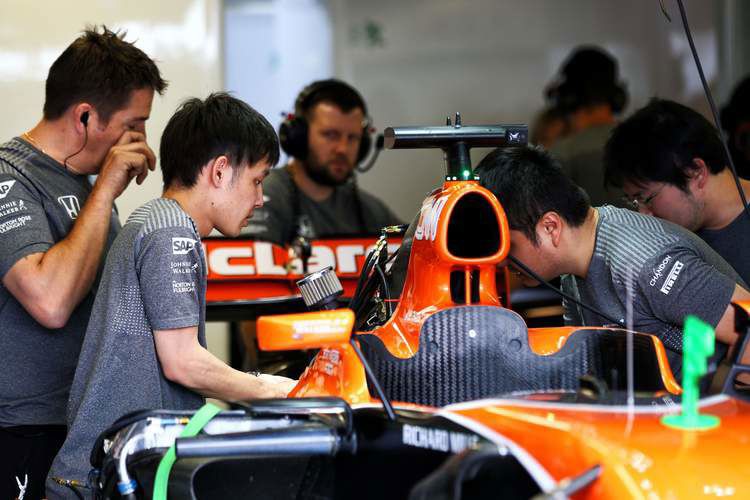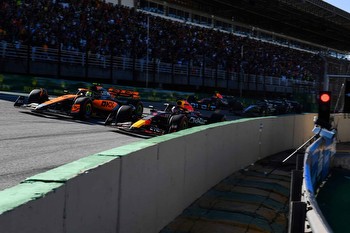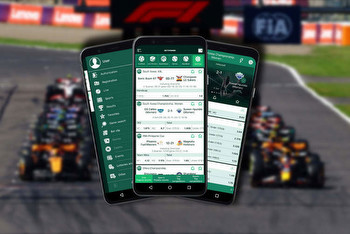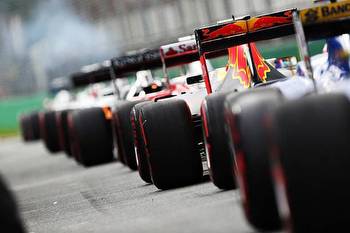What’s It Really Like to Work in Formula 1?

It’s really difficult to explain the popularity of Formula 1. It probably has something to do with the unique nature of cars, the superstar status of the drivers, and the drama and rivalry.
Formula 1 has long been a phenomenon in Europe, where it’s the king of motorsports, but it’s been gaining a foothold in the United States recently. NASCAR was once called “the fastest-growing sport in America.” Right now, it’s not anything close to that.
The Grand Prix of Miami gives Formula 1 its third race in the United States, along with the United States Grand Prix at Austin’s Circuit of the Americas and the all-new Las Vegas Grand Prix in November.
Working in Formula 1 can be a lucrative career, as you get exposed to a sheer number of people, places, and cultures. The elite motorsport community isn’t limited to behind-the-wheels, so you can broaden your horizons by working with the top professionals in the field.
It may seem out of reach for the vast majority, yet with hard work, passion, and a little bit of luck, anyone can get a job in Formula 1. Of course, if you want to break into the industry, you must be at your highest level. Therefore, always aim to get better.
Most Formula 1 Careers Begin Off the Track
Formula 1 fosters a dynamic system to improve quality and efficiency, so it’s very competitive off-track and on it. Whether you’re new to elite motorsport or have several years of experience, the job search can be challenging and overwhelming, so the hunting process can seem pointless.
Most careers begin off the track, with many starting at the bottom, gradually building their way up to the top. If you don’t have a college degree, you can work in a warehouse; your tasks include shipping responsibilities like receiving duties or packing boxes.
Regardless of the role, it exposes you to constant opportunities to build and develop skills important for future leadership or management roles.
Numerous jobs are available for engineers on account of development and manufacturing. You could become a composite design engineer, developing the carbon fibre components that make their way into the race cars. It would be up to you to create new and improved parts via 3D modelling and CAD-based tools.
Oxford is one of the very few universities that benefit from the Formula 1 Engineering Scholarship, which supports people with undergraduate and postgraduate engineering degrees, covering the full cost of tuition and offering work experience opportunities. You could take into consideration the possibility of working in elite motorsports.
Every Day Is Different & You Never Know What to Expect
A job in Formula 1 is challenging, as you have to manage, seek, and commit to achieving performance. If you don’t take the time to improve work performance, you’ll find yourself experiencing problems such as a decline in work quality.
Each person is responsible for an area of the vehicle, and you must meet your objectives in a relatively short period of time. In other words, you must push yourself to perform 100% every day. It’s part of your job to combat laziness in all its forms, whether for yourself or for your team. In Formula 1, every person is driven to succeed, and they’re highly motivated to get the job done.
Earlier this year, a man fell to his death while inspecting the hospitality unit used by the Formula 1 racing team. He was undertaking a structural inspection at McLaren’s Paddock Brand Centre. Danger remains present in elite motorsport, so it’s necessary to accept the possibility.
Getting back to the case at hand, the Health and Safety Executive discovered McLaren didn’t control the hazards present, so it doesn’t come as a surprise the worker fell from height.
You can read more about personal injury cases, including how you can check if you’re eligible to make an accident at work claim and what evidence you need, at https://www.accidentclaims.co.uk/accident-at-work-claim. Not all crashes take place during the race.
It’s recommended to learn the fundamentals to get a strong foundation that will support your career, after which you must continue working hard. As highlighted earlier, breaking into Formula 1 is anything but easy, so always seek new opportunities in other industries as well.
For example, you could find a job in the automotive or aerospace industry. Teamwork is a big part of motorsport, so you’re only as good as your weakest link. To be a good team player at work, you must be a good communicator, have problem-solving skills, take the initiative, know your strengths, and help others.
Career Progression Can Take Many Forms in Formula 1
Moving ahead or progressing in your career is possible in today’s Formula 1, but it all depends on your experience and performance. Timing and politics bear significance as well. Obtaining a competitive advantage throughout your career increases the odds of getting the promotion you want, but you must develop the necessary skills.
Even if you want to go higher, it might not be possible. Getting more and more responsibility is the normal state of things, but your aim should be to become a better team leader, making a difference for your team and your organisation. There are people you don’t see on TV, but they play an important role in the Formula 1 circuit to get the show on the road.
One of the best things about working in Formula 1 is that you get to see your ideas and designs come to life. You can turn a random idea into reality in a matter of weeks. Just pay attention to the fact that it’s a huge amount of work; it’s not an insult to your intelligence.
Formula 1 gives you the opportunity to travel around the world and work with some of the most impressive cars you’ve ever seen – make up your mind whether you want to work in design, engineering, or marketing. Formula 1 can accommodate any of your passions. Career development can take different forms, given the changes in technology and the global economy.
Concluding Thoughts
In closing, very few sports can compare to Formula 1. If you have a genuine passion for racing, work hard to make your resume stand out, and have minimal professional experience, you’ll get the job. Even if you have zero experience, you might just as well apply.



































